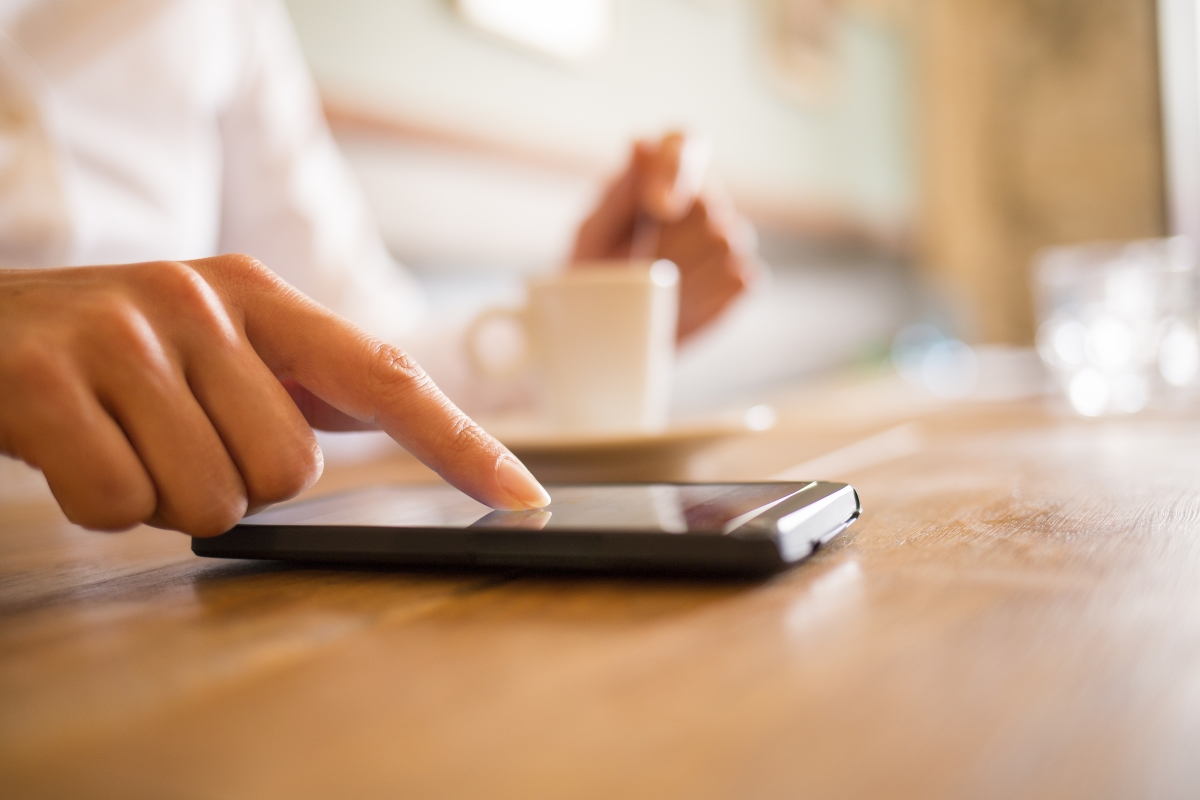Smartphones: We can’t live with them … we can’t live without them.
These devices have changed the way we work and communicate, packing all the power of an average laptop into a tiny, handheld digital companion.
But let’s be real: with everything it knows about you, your trusty smartphone can quickly become a security nightmare.

Our apps store everything from cherished memories to personal finances, calendar appointments, contacts, emails… even your exact location – so it doesn’t take much to realise what’s at stake here.
But just like securing your computer, there are also many great ways to keep your mobile phone secure. Let’s take a look at our top 5 picks.
1. Keep your apps clean
Apps are central to your mobile experience, but a stray download (particularly on Android) could leave you with some nasty malware, tracking software or a frustratingly laggy device.
Be sure to only download your apps from trusted and official sources: Google Play and Amazon marketplaces for Android, or iTunes and Apple’s App Store for iOS. Particularly on Google Play, be sure to read the user reviews and opt only for reputable apps with high star ratings.
Users with iPhones can rest a little easier, as Apple filters all App Store offerings and won’t allow users to install anything but pre-approved games and utilities.
However, if you’ve jailbroken your device, this safeguard is eliminated. We’d recommend giving this practice a miss if you’re not willing to run an increased risk of a compromised phone.
2. Download a mobile anti-virus package
Android users: While you’re in the Play Store, do yourself a favour and pick up an anti-virus scanner for your mobile device. There are many great, free options to choose from. They should perform full-system scans, as well as scan each app you download. Others even have advanced anti-theft and backup features, if you’re willing to pay a little bit extra.
If you have a jailbroken iOS device and are installing apps from outside Apple’s official channels, it would be wise to install an anti-virus package, too. iOS antivirus apps are a little harder to come by, however companies like Avira have solid options for you.
3. Watch the WiFi
It might seem like a great alternative to using your pricey mobile data plan, but using free public WiFi to get your mobile internet fix can be a very dicey prospect for your security. For the full story, check out our article, the dangers of public WiFi.
Be sure to turn off ‘Automatic Connection’ to Wi-Fi, too. Scammers can easily create a fake duplicate of a trusted network, tricking your phone into connecting automatically.
4. Be wary of links
Many users don’t think twice about following links inside a text message or email, but caution is advised: phishing can also happen on your phone.
An official-looking SMS can direct you to an unsecure site, where what you enter isn’t going where you think it’s going. The text may alert you to a changed password, unauthorised login, overdrawn account or other issue. It might ask you to ‘Click Here’ to fix the issue.
Due to your phone’s smaller screen, it can be easier for your eyes to be trumped by an official looking site.
Instead of following links on your phone, it’s always a better policy to leave matters like these until you’re at home. Once there, log in to your official banking portal or make a call to customer service to check whether anything is really the matter.
5. Set a passcode
Without a passcode, anybody who gets hold of your phone will have unrestricted access to everything within.
Setting a PIN code to unlock your phone is a simple process, and the setting is available on all major phone operating systems. What’s more, it’s also enough to deter anyone but the most determined data snoop.
A word to the wise: don’t use your birth year, birth date or a repeated string like 0000 as an unlock PIN. Those combinations can be easy to guess, or in the case of the repeated numbers - super easy for sneaky shoulder-peekers to infer.
In fact, many phones will now allow you to set a password instead of a four digit lock-screen PIN. As long as your choice is strong, this is a significantly better option.
As well, popular devices such as the most recent iPhone and Samsung offerings now also include a fingerprint scanner. This is an excellent first line of security, so if your device allows for it, definitely consider putting it to good use!
(However, no skimping! You’ll still need a strong passcode or password as a backup.)
If you’re after some further reading, check out these resources:
